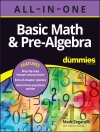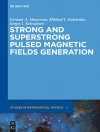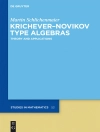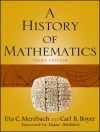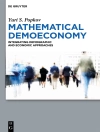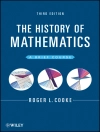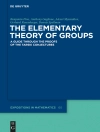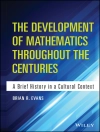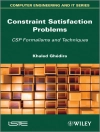This volume presents a collection of some of the seminal articles of Professor K. S. Shukla who made immense contributions to our understanding of the history and development of mathematics and astronomy in India. It consists of six parts: Part I constitutes introductory articles which give an overview of the life and work of Prof. Shukla, including details of his publications, reminiscences from his former students, and an analysis of his monumental contributions. Part II is a collection of important articles penned by Prof. Shukla related to various aspects of Indian mathematics. Part III consists of articles by Bibhutibhusan Datta and Avadhesh Narayan Singh—which together constitute the third unpublished part of their History of Hindu Mathematics—that were revised and updated by Prof. Shukla. Parts IV and V consist of a number of important articles of Prof. Shukla on different aspects of Indian astronomy. Part VI includes some important reviews authored by him and a few reviews of his work.
Given the sheer range and depth of Prof. Shukla’s scholarship, this volume is essential reading for scholars seeking to deepen their understanding of the rich and varied contributions made by Indian mathematicians and astronomers.
Spis treści
Chapter 1. The Oeuvre of Kripa Shankar Shukla.-
Chapter 2. Studies in Indian Mathematics: Bhāskara I to Nārāyaṇa Paṇḍita.-
Chapter 3. Revised version of the Manuscript of the Third Volume of Datta and Singh.-
Chapter 4. Studies in Indian Astronomy: From Vedic Period to the Emergence of Siddhāntas.-
Chapter 5. Development of Siddhāntic Astronomy: Some Highlights.-
Chapter 6. Reviews and Responses.
O autorze
ADITYA KOLACHANA is a post-doctoral researcher at the Indian Institute of Technology Bombay, India, studying various aspects of the history of mathematics and astronomy in India. He obtained his Ph D in the history of science from Indian Institute of Technology Bombay, India. He studied at the Indian Institute of Technology Kharagpur and Indian Institute of Management Ahmedabad, India. Earlier, he worked for over four years with Bain & Company, Clinton Foundation, and Procter & Gamble and also briefly taught finance at the Birla Institute of Technology and Science, Pilani, Hyderabad Campus, India. K. MAHESH is a research scientist at the Cell for the Indian Science and Technology in Sanskrit, Department of Humanities and Social Sciences, Indian Institute of Technology Bombay, India. He acquired his Ph D degree from Indian Institute of Technology Bombay, India, in 2010, by working on the Indian astronomy (
Siddhānta Jyotiṣa). He went to the Centre Nationale de la Recherche Scientifique (CNRS), Paris, for doing his post-doctoral research in the history of numerical tables. On returning from Paris, he joined the Samskrit Promotion Foundation, New Delhi, and served there for three years. In 2015, the Indian National Science Academy, New Delhi, bestowed upon him the Young Historian of Science Award.
K. RAMASUBRAMANIAN is a professor at the Cell for the Indian Science and Technology in Sanskrit, Department of Humanities and Social Sciences, Indian Institute of Technology Bombay, India. He holds a doctorate degree in theoretical physics, a master’s degree in Sanskrit, and a bachelor’s degree in engineering—a weird but formidable combination of subjects to do multidisciplinary research. He was honoured with the coveted title “Vidvat Pravara” by the Shankaracharya of Sri Sringeri Sharada Peetham, Karnataka, India, for completing a rigorous course in
Advaita Vedānta (a 14-semester program), in 2003. He is one of the authors who prepared detailed explanatory notes of the celebrated works
Gaṇita-yuktibhāṣā (rationales in mathematical astronomy),
Tantrasaṅgraha and
Karaṇa-paddhati, which bring out the seminal contributions of the Kerala School of Astronomers and Mathematicians. He was conferred with the prestigious award of the Mahaṛṣi Bādarāyaṇa Vyas Samman by the then President of India, in 2008, and the R.C. Gupta Endowment Lecture Award by the National Academy of Sciences India, in 2010. He is a recipient of several other awards and coveted titles as well. From 2013, he has been serving as an elected council member of the International Union of History and Philosophy of Science and Technology. He is also a member of various other national and international bodies.



